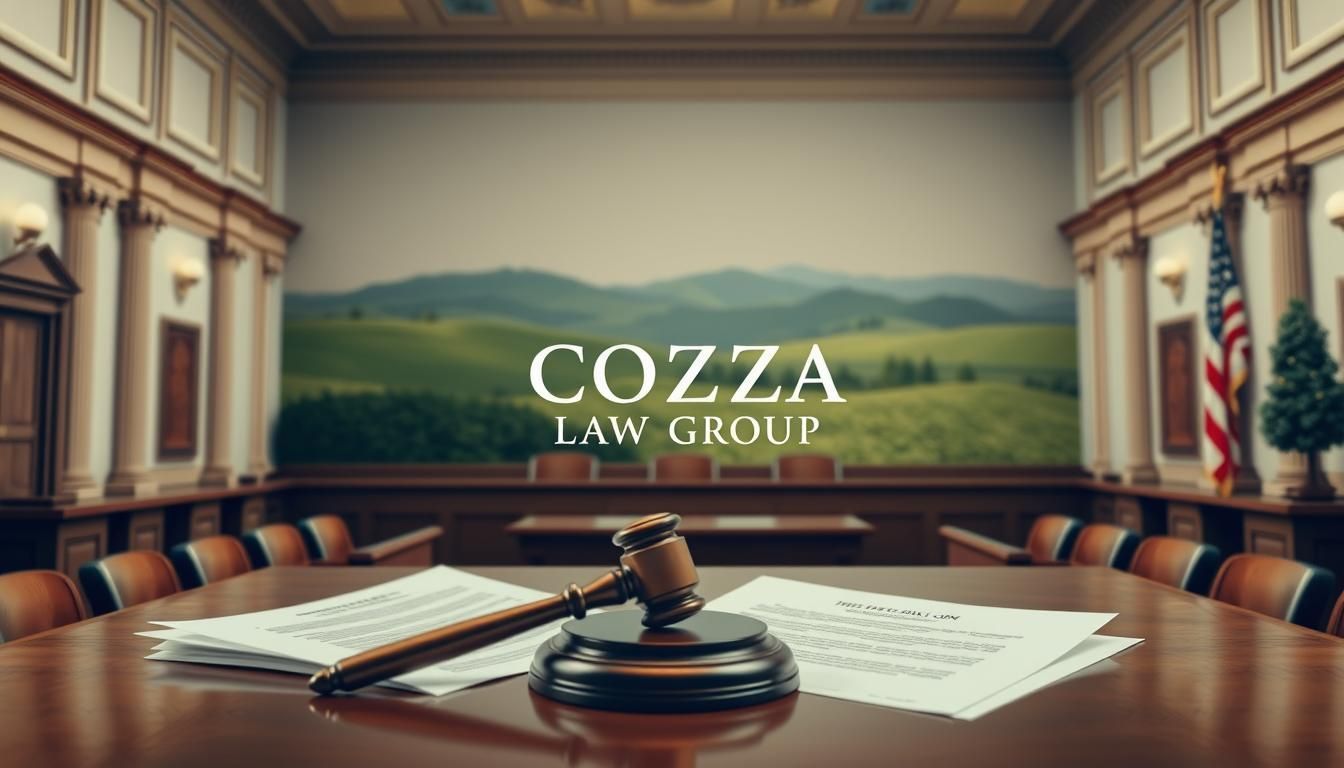Probate Process in Pennsylvania: What You Need to Know

When someone we love passes away, dealing with the probate process in Pennsylvania can be tough. We must understand the legal steps to handle an estate and share assets fairly. This is true whether the person had a will or not.
The probate process in Pennsylvania has specific steps to follow. This ensures everything goes smoothly and efficiently.
Key Takeaways
- Probate is the legal process of administering a deceased person's estate in Pennsylvania.
- The process differs for testate (with a will) and intestate (without a will) estates.
- Executors or administrators are responsible for managing the probate process, including notifying creditors, paying debts and taxes, and distributing assets.
- Pennsylvania has an Inheritance Tax rather than a Federal Estate Tax, with varying rates based on the beneficiary's relationship to the deceased.
- Probate can be avoided through strategies like living trusts, joint ownership, and beneficiary designations.
What is Probate in Pennsylvania?
Probate is a legal process in Pennsylvania after someone dies. It involves checking the decedent's last will and choosing an executor to handle the estate. The executor then distributes the assets to the beneficiaries.
Definition and Overview
In Pennsylvania, probate manages an estate after someone passes away. If the person owned assets in their name, the estate must go through probate. The process starts with opening the estate at the Orphan's Court.
Testate vs. Intestate Estates
There are two types of estates in Pennsylvania: testate and intestate. A testate estate has a Last Will and Testament. An intestate estate follows the state's Intestate Succession Law. Legal notices must be published to inform creditors about the estate.
Certain assets, like life insurance and joint properties, are not included in probate. The value of these assets at the time of death is also excluded. Pennsylvania's Inheritance Tax applies to all assets, with rates from 0% to 15% based on the relationship to the deceased.
Responsibilities of a Personal Representative
When someone dies, a personal representative must handle their estate. In Pennsylvania, this person makes sure the deceased's wishes are followed. They also ensure the estate is divided correctly.
Hiring an Attorney
One of the first things a personal representative should do is hire an estate attorney. The probate process in Pennsylvania is complex. An attorney can guide them, handle paperwork, and make sure everything is done right. This helps avoid legal problems and keeps the estate in order.
Identifying Non-Probate Assets
The personal representative must figure out which assets need probate and which don't. Assets like joint bank accounts or life insurance policies go directly to the beneficiaries. They don't need to go through probate.
Gathering Necessary Documents
The personal representative must find and keep all important documents. This includes titles, bank statements, and the original will. These documents needed for probate help open the probate case and manage the estate.
Knowing what a personal representative must do and working with an estate attorney makes the probate process easier. This way, the deceased's wishes are respected, and the estate is divided fairly.
Probate Process in Pennsylvania: A Step-by-Step Guide
Understanding the probate process in Pennsylvania can be tough. But knowing the key steps helps make it smoother. Let's look at the main stages of probate in the Keystone State.
Filing the Will and Petition for Probate
The probate process starts when the personal representative files the will and a petition. They do this with the Register of Wills in the decedent's county. The petition has important details about the decedent, the personal representative, and the estate's assets.
Notifying Creditors and Beneficiaries
You must notify the decedent's creditors by publishing legal notices. You also need to inform all beneficiaries within 3 months of being appointed. This is required by Pennsylvania's laws.
Inventorying the Estate
The personal representative must list all assets that are part of the probate. This includes real estate, bank accounts, investments, and personal property. The inventory must be filed with the Register of Wills within 9 months of the decedent's death.
Paying Debts, Taxes, and Expenses
Before giving assets to beneficiaries, you must pay debts, taxes, and expenses. This includes funeral costs, medical bills, and credit card balances. If there's not enough money, debts are paid in a specific order under Pennsylvania law.
Distributing Assets to Beneficiaries
After paying all debts and expenses, you can give the remaining assets to beneficiaries. This is done according to the will or Pennsylvania's laws. You must provide a final accounting to the beneficiaries and the Register of Wills, showing the estate's financial transactions and asset distribution.
When is Probate Required in Pennsylvania?
In Pennsylvania, probate is needed based on the deceased's assets and if they had a will. It's required for assets not owned jointly or with a beneficiary. This includes real estate, bank accounts, and personal items owned by the deceased alone.
Probate is needed whether the person had a will or not. But, there are exceptions. For example, small estates or certain assets might not need probate.
- Small estates in Pennsylvania are those with assets under $50,000, excluding real estate. These can be settled quickly.
- Assets like jointly owned property, POD/TOD accounts, and living trusts don't need probate.
- Pennsylvania has exemptions for assets like life insurance, retirement accounts, and some personal items. These can avoid probate.
The need for probate in Pennsylvania depends on the assets and circumstances. It's wise to talk to a probate attorney for the best handling of the estate.
Assets Subject to Probate Process in pennsylvania
In Pennsylvania, the probate process is key in handling a deceased person's estate. Some assets are not subject to probate, but knowing what probate assets in Pennsylvania are is vital. Probate assets include real estate owned alone, bank accounts in the decedent's name, stocks and investments in their name, and personal items like cars or collections.
Non-probate assets in Pennsylvania don't need probate. These include property owned jointly, certain bank accounts, life insurance with beneficiaries, and assets in a living trust. Knowing what assets go through probate in Pennsylvania helps in estate planning. It ensures assets pass smoothly to the right people.
Talking to an estate planning attorney or probate lawyer is wise in Pennsylvania. They can guide through the probate process. This way, assets are distributed as wished, saving time and money.
Alternatives to Probate in Pennsylvania
Dealing with probate in Pennsylvania can be tough. Luckily, there are simpler ways to transfer assets and cut down on costs. The small estate affidavit and transfer by affidavit are two such options.
Small Estate Affidavit
If a person's estate in Pennsylvania is worth less than $50,000 (excluding real estate), there's a quicker way. This is called "settlement by affidavit" or "summary administration." It skips the full probate process.
The personal representative can use a small estate affidavit. This lets them gather the deceased's assets, pay debts, and give out what's left to the heirs.
Transfer by Affidavit
Some assets in Pennsylvania can be passed on directly to the named beneficiary. This includes life insurance, retirement accounts, and POD accounts. Also, jointly-owned property and living trusts don't need probate to transfer.
Looking into these alternatives can save time and money. It also makes transferring assets to loved ones easier.
Conclusion
The probate process in Pennsylvania can seem complex. But, knowing the steps and options can make it easier. It's important to understand when probate is needed, what assets it covers, and the role of the personal representative.
Exploring alternatives like the small estate affidavit can also help. This way, you can manage the process better.
We've looked at the probate process in Pennsylvania. This includes what probate is, the role of the personal representative, and the steps involved. Knowing these details helps you navigate the process smoothly.
Being aware of the probate process summary and key takeaways is crucial. It ensures the timely and efficient distribution of assets.
Getting legal advice from an experienced estate attorney is also key. They can guide you through the probate process in Pennsylvania. With their help, the process can be less daunting, providing closure and ensuring the estate is distributed properly.




